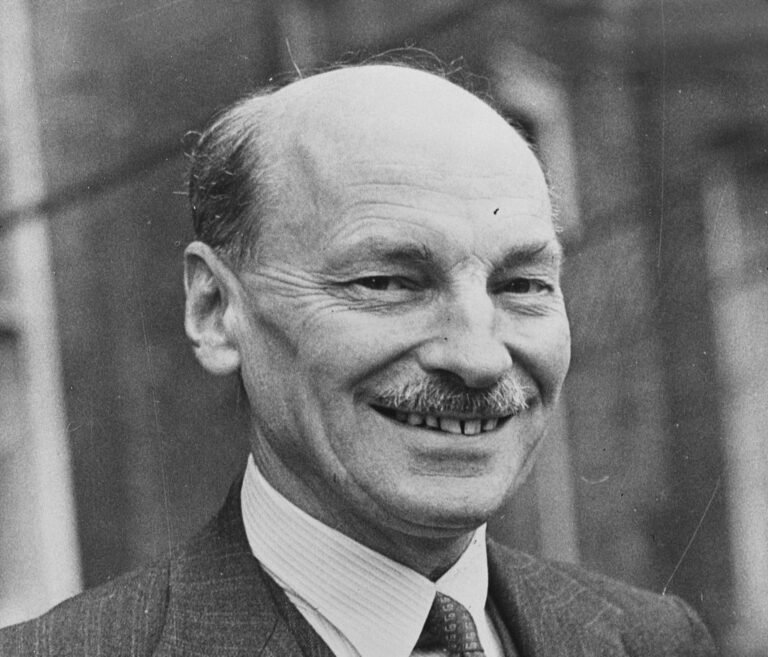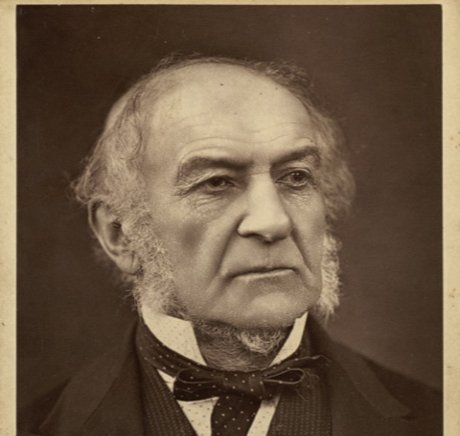Benjamin Disraeli was a pivotal figure in British politics. He was a novelist and twice Prime Minister of the UK.
His legacy is rich with influence and intrigue, capturing the imagination of many. Understanding Disraeli’s life offers insight into a transformative era in British history. His journey from novelist to leader was marked by ambition and resilience. Disraeli’s policies and charisma left a lasting impact on the nation.
His story reflects the complexities of Victorian society and politics. Through his words and actions, Disraeli shaped the course of history. This exploration of his life will uncover the man behind the legend. Discover the achievements and challenges faced by Benjamin Disraeli. His life remains a testament to the power of vision and determination.
Early Life
Benjamin Disraeli, born in London in 1804, was the son of a Jewish merchant. He attended several private schools and began his career in law before turning to politics. His early life was marked by a strong interest in literature and he published several novels before entering Parliament.
Benjamin Disraeli, a prominent British statesman, had a fascinating early life that shaped his future endeavors. His upbringing and education played crucial roles in molding his character and aspirations.
Family Background
Benjamin Disraeli was born on December 21, 1804, in London. His family was of Jewish descent, which was quite unique in the British political landscape at that time.
His father, Isaac D’Israeli, was a well-known literary figure, while his mother, Maria Basevi, came from a merchant family. Together, they provided Benjamin with a culturally rich environment.
Despite facing societal prejudices, the Disraelis maintained a strong sense of identity and pride. This resilience undoubtedly influenced Benjamin’s determination and ambition.
Education
Disraeli’s education began at home, where he was tutored by his father. Isaac ensured that Benjamin was well-versed in literature, history, and languages.
Later, Benjamin attended several private schools, including Higham Hall and the Reverend John Potticary’s School. These institutions provided him with a solid academic foundation.
Interestingly, Disraeli was not just a bookworm; he was also known for his wit and charm. These traits helped him forge influential connections and navigate the social complexities of his time.
Benjamin’s early experiences in education and family life were instrumental in shaping his worldview. They equipped him with the skills and confidence needed to pursue a remarkable political career.
How did your family’s background and education shape your aspirations?
Political Rise
Benjamin Disraeli, a name synonymous with British politics, had a journey marked by determination and strategic brilliance. His rise wasn’t an overnight success but rather a testament to his perseverance and unique approach to political challenges. Let’s delve into his first political steps and the key positions he held that solidified his legacy.
First Political Steps
Disraeli’s political ambitions were clear from the start. He first entered the political arena in 1837 when he was elected as a Member of Parliament (MP) for Maidstone.
He faced numerous challenges, including skepticism due to his Jewish heritage. Despite this, he persevered, showcasing his impressive oratory skills and sharp wit, which gradually won over his peers.
His early speeches, marked by flamboyance and audacity, set him apart from other politicians. These speeches were not just about policy but also about captivating his audience.
Key Positions Held
Disraeli’s career saw him occupy several significant positions. He served as Chancellor of the Exchequer multiple times, demonstrating his prowess in managing the nation’s finances.
His most notable position came in 1868 when he became Prime Minister of the United Kingdom. This role allowed him to implement several key reforms that shaped the future of British politics.
As Prime Minister, Disraeli focused on foreign policy and social reform. His efforts to expand the British Empire and improve public health services were particularly impactful.
Disraeli’s political journey is an inspiring tale of overcoming adversity and achieving greatness. His story prompts us to ask: How can we turn our own challenges into stepping stones for success?
Prime Minister
Benjamin Disraeli served as Prime Minister of the United Kingdom in the 19th century. He was known for his wit and political skill. Disraeli played a key role in shaping modern British politics.
First Term Achievements
Second Term Policies

Credit: www.npg.org.uk
Domestic Policies
Benjamin Disraeli’s domestic policies focused on social reforms and expanding voting rights. He aimed to improve living conditions and reduce inequality. His efforts laid the foundation for modern welfare state principles.
Benjamin Disraeli, known for his charismatic leadership and progressive vision, made significant strides in domestic policies during his time as British Prime Minister. His approach combined a keen understanding of economic challenges with a compassionate view towards social welfare. Disraeli’s policies aimed to boost the economy and improve living conditions for the working class. As you delve into his domestic strategies, it’s fascinating to see how his ideas resonate even today.
Economic Reforms
Disraeli believed in empowering the British economy by fostering industrial growth. He supported infrastructure development, which included expanding railway networks to improve trade and transportation.
This move not only boosted commerce but also created jobs. Imagine the excitement of seeing a bustling economy where opportunities abound.
Disraeli also addressed fiscal policies to stabilize the economy. He aimed to balance the budget and reduce national debt. You might wonder, how can a country thrive without sound financial management?
These reforms laid a foundation for sustainable economic growth, emphasizing the importance of financial prudence.
Social Initiatives
Disraeli was deeply concerned about the welfare of the working class. He introduced the Public Health Act, aiming to improve sanitation and housing conditions.
This act was a beacon of hope for many, enhancing quality of life. Have you ever considered how a clean environment impacts your daily health and productivity?
His Factory Act reduced working hours and improved conditions in factories. Disraeli understood the importance of humane working environments. Think about how a supportive workplace can increase morale and productivity.
These social initiatives reflect Disraeli’s commitment to fostering a society where everyone has the opportunity to thrive. His policies invite us to consider what steps we can take today to ensure a balanced approach to social welfare and economic growth.
Foreign Affairs
Benjamin Disraeli’s tenure as a British Prime Minister was marked by significant moves in foreign affairs. His approach was strategic and bold, often stirring both admiration and criticism. Let’s delve into some of his diplomatic successes and colonial expansions.
Diplomatic Successes
Disraeli had a knack for navigating the complex terrain of international politics. One of his notable achievements was the Congress of Berlin in 1878. Here, he managed to secure favorable terms for Britain, including the protection of the Ottoman Empire’s territory, which helped maintain the balance of power in Europe.
His actions at the Congress of Berlin not only prevented a potential war but also showcased his diplomatic finesse. Disraeli was known for his ability to strike deals that benefitted Britain while maintaining peace. Have you ever thought about how modern leaders could learn from his approach?
Colonial Expansion
Disraeli was also instrumental in expanding the British Empire. A significant moment was the purchase of shares in the Suez Canal in 1875. This move was crucial as it gave Britain control over a key maritime route to India, enhancing both trade and military reach.
Imagine the logistical prowess needed to execute such a strategic acquisition. This bold move not only strengthened Britain’s global position but also showcased Disraeli’s foresight. How might this kind of strategic thinking be applied in today’s geopolitical landscape?
Disraeli’s foreign policy was not without controversy, but his successes in diplomacy and colonial expansion left a lasting impact. His actions continue to be a point of reference for understanding the complexity and necessity of strategic international relations.

Credit: en.wikipedia.org
Literary Contributions
Benjamin Disraeli, the renowned British statesman, was not only a political figure but also a prolific writer. His literary contributions showcase his remarkable ability to blend politics with fiction, offering readers a glimpse into the Victorian era through his novels and other works. Let’s delve into his literary style and notable works.
Novels And Works
Disraeli’s novels reflect his deep understanding of the social and political landscape of his time. Some of his most famous works include Sybil, Coningsby, and Tancred. These novels are rich in political commentary and historical detail.
Sybil explores the disparities between the rich and the poor in England, highlighting Disraeli’s concern for social reform. This novel is particularly poignant in its portrayal of the struggles faced by the working class.
Coningsby is another notable work where Disraeli combines his political insights with a compelling narrative. The story follows a young aristocrat navigating the complexities of British politics, providing readers with a vivid picture of Victorian society.
Literary Style
Disraeli’s writing style is characterized by its eloquence and wit. He had a unique ability to create vivid, memorable characters that resonate with readers. His narratives are often infused with political philosophy, making his works both entertaining and thought-provoking.
His prose is direct and engaging, drawing readers into the story with powerful descriptions and dialogue. Disraeli’s ability to articulate complex ideas in an accessible manner is a testament to his literary prowess.
Disraeli’s works often pose questions about society and governance, urging readers to reflect on their own views. His literary style invites you to not just read, but also think deeply about the themes he presents.
Personal Life
Benjamin Disraeli, a remarkable figure in British history, is often remembered for his political achievements. However, his personal life also offers an intriguing glimpse into the man behind the politics.
Marriage And Family
Disraeli married Mary Anne Wyndham Lewis in 1839. She was a wealthy widow, older than Disraeli, and their marriage raised many eyebrows.
Despite the age difference, their relationship was strong. Mary Anne was a supportive partner, playing a crucial role in Disraeli’s career.
They had no children, but their home was often filled with lively discussions and influential guests, creating a vibrant family atmosphere.
Personal Interests
Disraeli had a passion for literature. He wrote several novels, with “Sybil” and “Coningsby” being particularly famous.
His love for gardening was evident at his estate, Hughenden Manor, where he spent time cultivating plants and enjoying nature.
Disraeli also enjoyed social gatherings. He was known for his wit and charm, often captivating guests with his storytelling.
How do you balance your professional life with personal interests? Disraeli’s life shows that pursuing passions outside of work can enrich both personal and professional experiences.
Legacy
Benjamin Disraeli, a key figure in British politics, left a lasting legacy. His work as Prime Minister shaped modern conservatism. Disraeli’s policies and novels continue to influence political thought today.
Benjamin Disraeli, a towering figure in British history, left an indelible mark on the world. His legacy continues to influence politics and society today. Let’s explore how his contributions shaped the future.
Influence On Politics
Disraeli’s political career was nothing short of groundbreaking. As Prime Minister, he expanded the British Empire and promoted social reforms.
He introduced the Second Reform Act, which extended voting rights to a larger portion of the male population. This move was revolutionary at the time and laid the groundwork for modern democracy.
You may wonder how a leader from the 19th century is still relevant. Disraeli’s commitment to social justice and equality resonates with contemporary political movements. His vision of a united nation still inspires politicians today.
Enduring Impact
Disraeli’s influence goes beyond politics. His writings, including novels and essays, offer insights into the human condition and societal structures.
He famously said, “The secret of success is constancy to purpose.” This principle is a powerful reminder to stay focused on your goals, no matter the challenges.
Imagine applying Disraeli’s unwavering determination to your own life. Think about a time when you faced a daunting task. His example teaches us to persevere and stay true to our objectives.
Disraeli also championed the idea of “One Nation” conservatism. He believed in reducing the gap between the rich and the poor. This idea is still relevant, as we strive for a more equitable society.
How will you carry forward Disraeli’s legacy in your own life? Consider his principles and how they can inspire your actions and decisions.
In summary, Benjamin Disraeli’s legacy is a testament to the power of visionary leadership. His influence on politics and enduring impact continue to shape our world. Embrace his lessons and let them guide you toward a brighter future.

Credit: www.britannica.com
FAQs
Who Was Queen Victoria’s Favorite Prime Minister?
Queen Victoria’s favorite prime minister was Benjamin Disraeli. She appreciated his charm, wit, and loyal support.
What Was Benjamin Disraeli’s Famous Quote?
Benjamin Disraeli’s famous quote is, “The secret of success is constancy to purpose. ” This highlights the importance of determination and perseverance.
Did Victoria Prefer Gladstone Or Disraeli?
Victoria preferred Disraeli over Gladstone. She appreciated Disraeli’s charm and flattery, while she found Gladstone’s manner condescending.
What Did Disraeli Believe?
Disraeli believed in the importance of social reform, the British Empire, and promoting national unity. He advocated for conservative principles.
Conclusion
Benjamin Disraeli’s legacy remains influential and inspiring. His political career showcased his determination. Disraeli’s ideas and reforms shaped modern Britain. His writings and speeches continue to be studied today. Disraeli’s journey from novelist to Prime Minister is remarkable. His resilience and vision offer valuable lessons.
Understanding his impact helps appreciate historical developments. Disraeli’s life story encourages perseverance and leadership. His contributions to politics and literature endure. Reflecting on Disraeli’s achievements can inspire future generations. His legacy is a testament to dedication and innovation. Studying Benjamin Disraeli enriches our knowledge of history.








